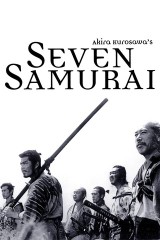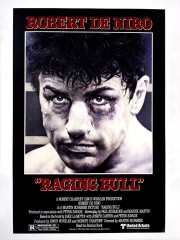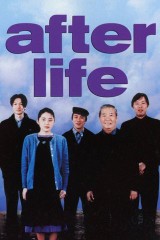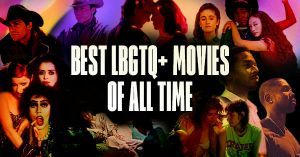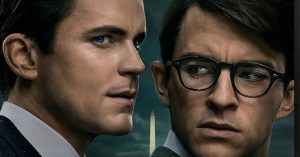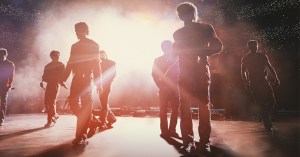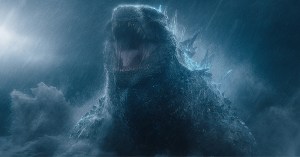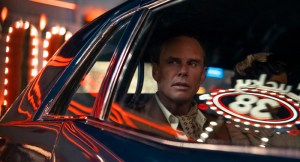Gareth Evans’ Five Favorite Films
The director of the Raid films and Netflix's Apostle talks Scorsese, Kurosawa, and inventing an original torture device.

(Photo by Rick Kern/Getty Images)
Action and martial arts afficionados are likely well aware of 2012’s The Raid (Certified Fresh at 86%), a bloody, no-holds-barred thrill ride out of Indonesia that was improbably directed by a Welshman. That Welshman is Gareth Evans, who previously introduced the world to silat master Iko Uwais in Merantau and followed up The Raid with an expansive sequel, The Raid 2 (also Certified Fresh at 80%). The trio of well-regarded martial arts films have served as a calling card for Evans, who readily admits they “kind of fell in my lap,” but there’s more to him than crisply photographed fights and precisely staged action setpieces.
On Friday, Netflix premiered Apostle, Evans’ latest film and a departure from the movies that made his name. Starring Dan Stevens, Michael Sheen, and Lucy Boynton, Apostle is a period horror-thriller about a troubled man who travels to a remote island to investigate a religious cult that has kidnapped his sister for ransom, and it’s about as far from a contemporary Indonesian martial arts film as you can imagine. Evans took some time to speak with RT about his new film, what it was like to design an original torture device, and why it’s fine by him if not everyone connects with Apostle. But first, here are Gareth Evans’ Five Favorite Films.
Ryan Fujitani for Rotten Tomatoes: I have to say, I’m a little surprised so many of your choices were specifically Japanese films.
Gareth Evans: I used to run a Japanese review website way back in the day, around about 2003, 2004. It was just my own little personal thing, because I was just obsessed with Japanese cinema. So I used to run a little website called jpreview.com — it’s gone now. But back in the day, I used to review Japanese films and back then I used to get affiliate links with different distributors and all their retailers and be able to source all these films from Hong Kong or YesAsia.com and pay import duty charges on the shipping on the movies all the time. Just to be able to say, like, “Yeah, yeah, yeah, I’ve seen Battlefield Baseball,” or I’ve seen some obscure movie that was just about to come out. [laughs]
RT: So let’s talk about Apostle. I understand that this film is based on something you wrote more than a decade ago. Obviously Merantau and the Raid movies came out in the meantime, but if you had made it back then, it’s possible that Apostle could have been your introduction to the world. Have you ever thought about the alternate reality timeline of your life? Like, what it would have looked like if your first big hit was this movie, as opposed to The Raid?
Evans: Oh, wow, I’ve never had a question like that before. I think in a way — it’s weird for me — I wonder if I would still be in this industry, to be honest. [laughs]
RT: Really?
Evans: Here’s the thing, because it’s due to such a set of circumstances — if I hadn’t met my wife, I would never have had any reason to travel to Indonesia beyond any personal reason. So that culture might have evaded me for a long, long, long time. I would never have met Iko [Uwais], would never have learned about the martial arts out there, would never have contemplated, “Ah, maybe I’ll make martial arts films.” It just wasn’t ever on my radar. All of these things kind of fell in my lap, so to speak. I don’t know, man. That’s a really interesting question.
You know what? When I think about all the ways it could have gone differently and it could have not happened for me, I don’t know if I would have got a film like this made, if I had not made The Raid either. You know what I mean? It would have been quite an absurd, different movie. So I don’t think some of it would have existed in the iteration that it currently is.
RT: What was it that ultimately drew you back to this story after so long, and after having established yourself with these great action films?
Evans: Well, here’s the thing, I made three martial arts films in a row, and I never planned to make one in my previous approach to cinema. It wasn’t until I went out to Indonesia that I realized, “Oh I can do this.” It felt natural, in a weird way. It was kind of like a step-by-step process, but there I was; I’d made three of them. The only other thing I’d made at that point was a short film for V/H/S/2, which was Safe Haven, that I co-directed with a good friend of mine called Timo Tjahjanto, who is now off making these incredible martial arts films himself in Indonesia. The Night Comes For Us is coming out soon, and I’m beyond excited. I keep missing it at the festivals I go to, so yeah, I’m going to catch that soon.
So I’d done those three martial arts films and I got struck by the bug of doing that short film, that horror short film, where I was really keen to further develop what I realized was the shared DNA, in terms of film-making tools and styles, that cross over between horror and action. The Raid technically is survival horror but with action beats. You know, it’s people trapped in a building, like a zombie attack.
So for me, I knew I wanted to do horror again, and where Safe Haven was a little bit limited in terms of camera manipulation, because the whole thing had to seem like it was a POV — it had to be from the perspective of certain cameras — this one allowed me to really explore horror in terms of the cinematic language of it, what the shot compositions would be, how we can manipulate the horror genre elements to it.
RT: I understand you actually invented one of the particularly gruesome torture devices featured in the film.
Evans: Are we talking about the drill one?
RT: Yes. Now, I’m no expert on torture methods of the era, but that one felt pretty convincingly period-accurate and skeeved me out pretty good. What was it like to research that, and was there ever a moment when you stopped and thought, “My God, I can’t believe I’ve just invented a torture machine?”
Evans: Yeah, I started researching medieval capital punishment methods, which was initially fascinating, then quickly became, “Oh my God, this is horrible. I don’t want to read any more of this.” A lot of the stuff they did was far, far, far worse than what we came up with. And then, when it came to designing a device, it had to feel organic to the place. It had to feel like it belonged within the society, that it didn’t feel like it would be this thing that they would wheel out that would suddenly feel so unusual and overly stylized. It had to have a certain baroque element to it, so it needed to be rustic, it needed to be raw iron.
I started looking at these ideas and we were like, “Well, what if it’s a table that gets assembled? I’d believe that. That could work.” And then, “What if it’s the vices they would have otherwise used in building, like if they wanted to connect two joints together and then strike a nail through it? They might use vices for that.” It felt like it was a tool that they might use in carpentry. When it came to the hole-cutter, well yeah, you’d use that in carpentry too, so all those elements felt like they might belong on that island.
What was interesting was this idea of, they were using things that would have been otherwise used to build the village, and now were being used to destroy its villagers. And so, it kind of had this instant juxtaposition then, so it felt organically in tune, and it also felt like it had a thematic quality to it as well.
RT: Speaking of thematic qualities, there are a lot of those at play in Apostle, but it also operates as a pure thriller, as a horror film. Not to imply that the film doesn’t accomplish both, but does it mean more to you that viewers connect with the themes, or that they’re sufficiently thrilled by the experience?
Evans: To be honest, either. Whenever you make a film, all you really want is for an audience to connect with it in some way. I’ve always found filmmaking one of the most absurd things in the world. The gestation of it is, “I have an idea. I have an idea in my head of what is going to become a story. Then, I’m going to spend X amount of months convincing someone to spend X amount of money to also combine our powers to convince other people to then pretend to be those people. [laughs] Other people could build a world in order for us to continue to this facade.” So this whole experience keeps going from month to month to month.
The fact that it then ends up existing as some kind of film on a hard drive somewhere, that someone else who I don’t know at all is just going to sit down and watch at some point, and then they might have a shared connective experience with what was initially just a seed of an idea. That baffles me. That absolutely astounds me. I think it’s a f—ing miracle, to be perfectly honest, that it works that way.
The idea that somebody would connect on any level at all with the film is incredibly flattering for me, and I feel honored whenever that does happen. To give maybe a more definitive answer to your question, I think for me, it was always a case of, there were themes that I wanted to play with. There were definitely themes of religion, of politics, and toxic massculinity, and what was going on with ISIS, but they’re all reflective elements. They’re not things that are sort of deep-dive elements. They are things that are reflective within the genre.
I know what I’m telling is an adventure-thriller-horror hybrid of a film, and for me, the only thing I’m drawing upon is those reflections of things that were in the headlines of that period of time, the global politics in 2016 when we started writing it, my anxieties sort of swirling around within all of those things, you know, as a parent, as a human being. Those things end up fusing within the world that we were creating. So yeah, fundamentally, it’s a thriller-horror hybrid, but that subtext has to be there, too. Otherwise, it’s just hollow there.
RT: It’s been an interesting time in the horror genre the past several years, as a number of filmmakers have begun to make moodier, more atmospheric thrillers — stuff like The Witch, It Comes at Night, and Hereditary earlier this year.
Evans: Three amazing films, by the way.
RT: Personally, I agree. But while critics have loved them, audiences haven’t quite all been on board with that, so I’m wondering, do you think those filmmakers have gone too far in the other direction?
Evans: No, I think it’s all subjective. It’s all opinion. I know — and I knew this when we were making it — Apostle‘s going to be divisive. There’s going to be some people who really dig it and some people who just won’t be able to stand watching it for more than five minutes. That’s just the nature of everything. There are films that I love, and there are films that I hate, just like everybody else. I happen to really love all three of those films that you mentioned, because they struck a fear and a chord in me, and I enjoyed every minute of those rides. You know, I loved The Babadook. I loved Goodnight Mommy. I loved Honeymoon; I thought Honeymoon was great as well. They all kind of crept under my skin, and they were different tones, different feels. At the same time, yeah, I could totally enjoy a Freddy Krueger film or a Saw film, or a Hostel film. Like, I can get behind those films too, but I have quite a wide taste when it comes to these types of films, of any kind of film, really. As long as something pains me, or provokes thought in me, I’m game to it.
But, you know, it’s like this: I got some friends who really love action films and they love, love, love everything to do with gunplay and vehicle work, but they just cannot get on board with martial arts films. It baffles me. Like, why can you not appreciate both? But for some people, you just can’t, and they won’t, and they never will, and that’s fine. That’s absolutely fine.
For me, I don’t think there’s ever a definitive opinion on any film, because every film, no matter how good or no matter how bad, is going to be somebody’s favorite and somebody’s most hated. I think that’s for everything — not just films, but for music, for books, for television, for everything that could be considered creative. There will be opinions across the board that differ widely from person to person, and that’s what makes it all fun.
Apostle debuted on Netflix on Friday, October 12, and is available to stream now.


